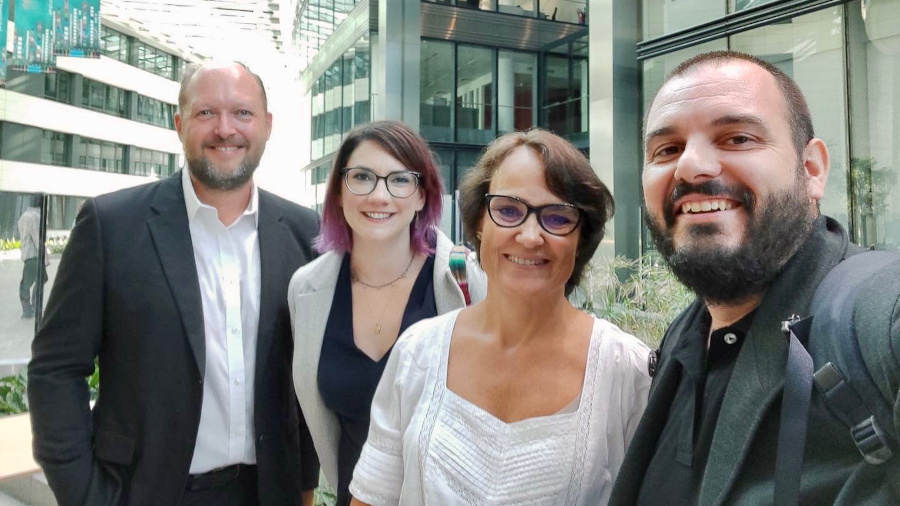The UAB awarded a 10M € Synergy Grant for a project on the Arab Agricultural Revolution

Department of Antiquity and Middle Age Studies lecturer Helena Kirchner will coordinate the project MEDGREENREV, which will be funded by the European Research Council with 10 million euros.
22/12/2022
The project "Re-thinking the 'Green Revolution' in the Medieval Western Mediterranean (6th-16th centuries)" (MEDGREENREV), coordinated by Helena Kirchner, professor of the UAB Department of Antiquity and Middle Age Studies, was awarded a Synergy Grant worth 9.99 million euros by the European Research Council (ERC). The project, which will be conducted during the next six years, includes the participation of researchers Guillermo García-Contreras from the University of Granada; Aleks Pluskowki from the University of Reading, and Michelle Alexander from the University of York.
The Arab Agricultural Revolution
The Muslim conquests of northern Africa and parts of southern Europe (Iberian Peninsula, Balearic Islands, Malta and Sicily) since the mid-7th century to the beginning of the 10th century CE formed one of the main events in history. In 1974, economic historian Andrew Watson popularised the concept of an "Arab Agricultural Revolution". Watson, basing himself on written Arabian texts, related the spread of 18 new Oriental cultivations, some of them tropical, with the Muslim conquests and posterior migrations. The expansion of these plants was accompanied by the introduction of the irrigation techniques needed to make them acclimate to the semi-arid or Mediterranean regions. The result, he argued, was an intensification in farming, which brought about a growth in population and the economic reorganisation of the medieval Islamic world.
Since then, the range and chronology of Watson's model has been discussed and nuanced, although only partially. While the introduction of hydraulic techniques and the creation of irrigated areas have been widely studied in the past 30 years, thanks largely to the work conducted by the UAB research group in Agrarian Archaeology of the Middle Ages (ARAEM), the archaeological identification of plants has not advanced as much.
The question aimed to be answered in the MEDGREENREV project is whether the Arab Agricultural Revolution consisted only in spreading the plants and hydraulic techniques used in the Middle East. "To answer that, the question must be reformulated in larger terms, adding a much more solid array of bioarchaeological and palaeoenvironmental data, and studying the long-term environmental impact of Muslim conquests and later population movements", explains Helena Kirchner. "Focused on the western Mediterranean, our holistic approach with a broad timeframe with allow us to study this green revolution not as a unique and uniform process, but as a long, unequal process with multiple and diverse local variations".
The researchers will be analysing a variety of topics, such as the ways in which the natural environment changed (plants, animals and landscapes) in the Iberian Peninsula, the Balearic Islands and Morocco from the 7th to the 16th centuries; the effect Christian conquests had on the Iberian Peninsula and the Balearic Islands as drivers of adaptation and innovation; the role changes in population had on the transmission of plants, animals, new diates and farming techniques; the determination of local agrarian structures that were abandoned and substituted and those that were maintained; new farming landscapes created, and the role of climate in relation to all these changes.
This information is related to the following SDG
Partnerships for the goals